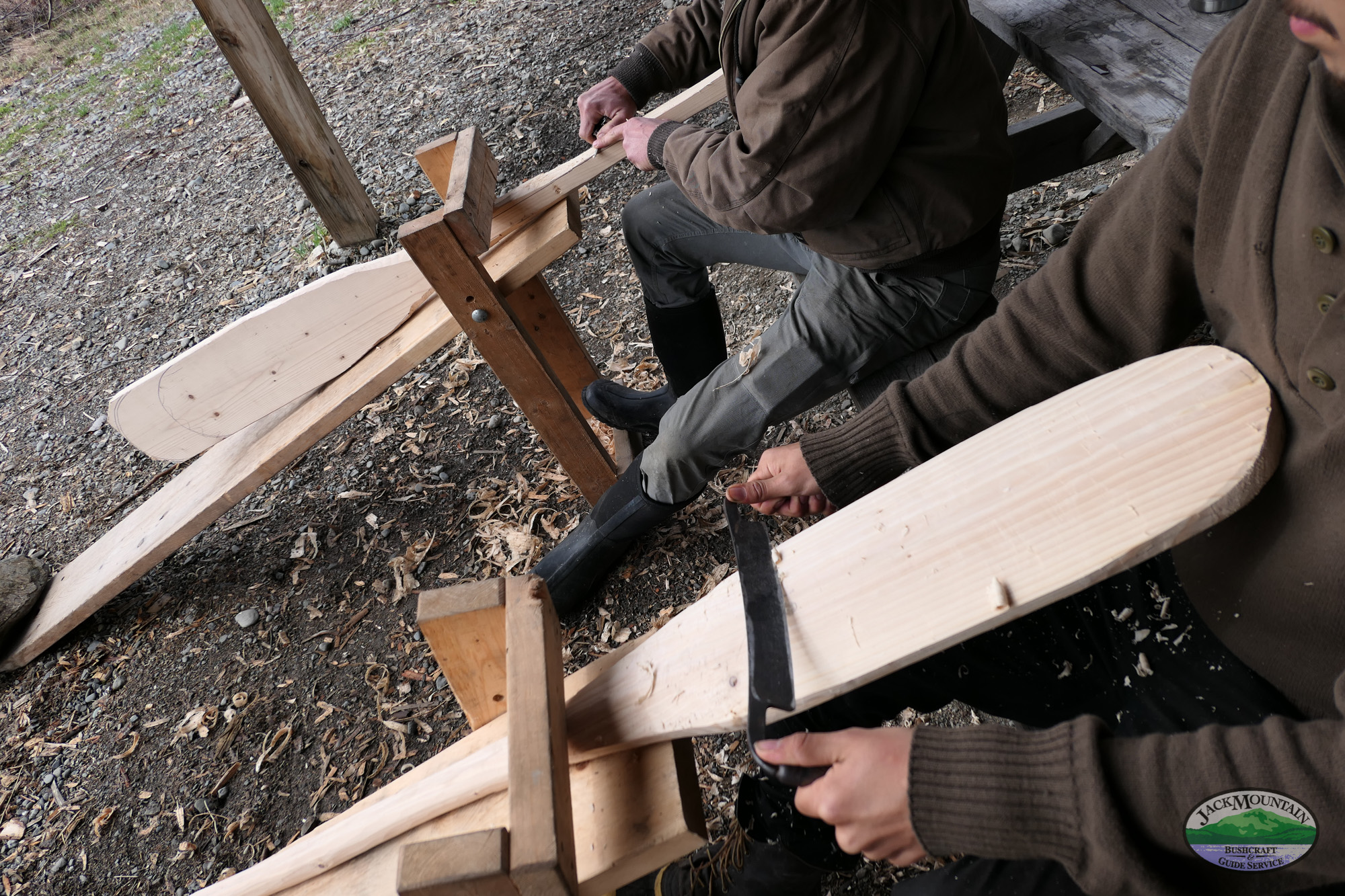It’s week three of the semester, and students have started their first big project; making canoe paddles.
This project is usually the first big test of patience for students during the semester. Up till now, they’ve built up a sense of working wood with small projects like netting needles, carving bowdrill sets, etc. Those are all great introductions to how wood interacts with an edged tool, but they’re usually done in an hour at most. Carving your first paddle from a piece of dimensional lumber usually takes a few days. Unlike using power tools in a higher infrastructure setting, tt’s physically taxing work, as your body adjusts to using different muscle groups to move a drawknife, spokeshave, saw or rasp in an effective way. It’s often a wake-up call of sorts to some students. Living with the land takes sweat and a certain amount of grit.
Big projects are great for teaching this, but only if there’s a certain amount of pay off when the project is completed. With paddles, that pay off is the ability to move around the landscape of Northen Maine with relative ease, and efficiency. We couldn’t see as much of this ecosystem on foot, at least not comfortably. With a canoe, a paddle and a pole, we can move a relatively large around fairly easily, and because of those methods, we live well on the trail.
That’s the point of big projects on the course. They take some time, and a whole lot of effort, but the knowledge is threefold. First, and most obviously, students learn how to use their tools in a new way, and gain a ton of real-world knowledge about working wood. Secondly, once the project is used in camp or the field, they understand what they did right, and more importantly what could have been improved. They USE the item/structure they’ve created and thus bring the whole process into context. It isn’t abstract, or for hanging on a wall, it’s a tool that they can make again and constantly improve on.
The third and most important, in my opinion, is that they learn what they need mentally and physically to complete big, physical undertakings. It’s a scale from ripping through a project without stopping and pacing yourself to prevent fatigue and burnout. We all fall somewhere on that scale, and it’s important to understand that on a personal level, not just for projects at the school, but for anything else life may throw at you. Making a paddle, shelter, or anything else here is great, but knowing yourself and your limits is the meta knowledge you gain from the process, and it will follow you through life from that point on.








